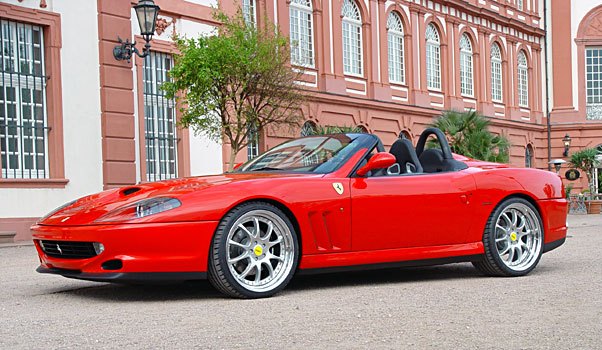Analysts: Peak Car To Arrive By 2020s
After a century of motoring, and with several factors rapidly changing the landscape, analysts are forecasting the peak of global automotive growth to come sometime in the 2020s.
The Detroit News reports that as more people join the exodus out of suburbia into major cities, along with other factors such as pollution, gridlock, build quality and the adoption of alternative modes of transportation — particularly among younger generations who cannot afford a car of their own — auto sales around the globe will peak somewhere around 100 million in the next decade, according to several analysts such as IHS Automotive.
Further, 44 percent of Americans surveyed by Intel said they would prefer to live in big cities with driverless cars able to keep traffic flowing smoothly, while one out of 10 households have no car at all.
The coming upheaval is prompting automakers to consider their place in the new scene, where red barchetta owners outrun silver bubble cars, and where car ownership gives way to car sharing. Tim Ryan, vice chairman of markets and strategy for PricewaterhouseCoopers LLP, puts the future of motoring into perspective:
The key question is: Do you sell cars or do you sell mobility? If you ignore these megatrends, you run the risk of becoming irrelevant.
With an expected 25 percent to 50 percent increase urban dwelling over the next decade, and 9 billion expected to live in urban areas 25 years from now, the groundwork is being prepared to meet this coming challenge. Gartner Inc. auto analyst Thilo Koslowski predicts urbanites to use ride- and car-sharing services such as Lyft and Car2Go to commute to their destination, with autonomous cars picking up their passengers, and using GPS and other communication technologies to deliver them safely.
Seattle-based writer, blogger, and photographer for many a publication. Born in Louisville. Raised in Kansas. Where I lay my head is home.
More by Cameron Aubernon
Latest Car Reviews
Read moreLatest Product Reviews
Read moreRecent Comments
- 3-On-The-Tree My experience with turbos is that they don’t give good mpg.
- GregLocock They will unless you don't let them. Every car manufacturing country around the world protects their local manufacturers by a mixture of legal and quasi legal measures. The exception was Australia which used to be able to design and manufacture every component in a car (slight exaggeration) and did so for many years protected by local design rules and enormous tariffs. In a fit of ideological purity the tariffs were removed and the industry went down the plughole, as predicted. This was followed by the precision machine shops who made the tooling, and then the aircraft maintenance business went because the machine shops were closed. Also of course many of the other suppliers closed.The Chinese have the following advantagesSlave laborCheap electricityZero respect for IPLong term planning
- MaintenanceCosts Yes, and our response is making it worse.In the rest of the world, all legacy brands are soon going to be what Volvo is today: a friendly Western name on products built more cheaply in China or in companies that are competing with China from the bottom on the cost side (Vietnam, India, etc.) This is already more or less the case in the Chinese market, will soon be the case in other Asian markets, and is eventually coming to the EU market.We are going to try to resist in the US market with politicians' crack - that is, tariffs. Economists don't really disagree on tariffs anymore. Their effect is to depress overall economic activity while sharply raising consumer prices in the tariff-imposing jurisdiction.The effect will be that we will mostly drive U.S.-built cars, but they will be inferior to those built in the rest of the world and will cost 3x-4x as much. Are you ready for your BMW X5 to be three versions old and cost $200k? Because on the current path that is what's coming. It may be overpriced crap that can't be sold in any other world market, but, hey, it was built in South Carolina.The right way to resist would be to try to form our own alliances with the low-cost producers, in which we open our markets to them while requiring adherence to basic labor and environmental standards. But Uncle Joe isn't quite ready to sign that kind of trade agreement, while the orange guy just wants to tell those countries to GFY and hitch up with China if they want a friend.
- CEastwood Thy won't get recruits who want to become police officers . They'll get nuts who want to become The Green Hornet .
- 1995 SC I stand by my assessment that Toyota put a bunch of "seasoned citizens" that cared not one iota about cars, asked them what they wanted and built it. This was the result. This thing makes a Honda Crosstour or whatever it was look like a Jag E type by comparison.


































Comments
Join the conversation
You gotta keep a firm grasp on the obvious. All this requires is a little data and analytical competency in long division. How many people live in the USA and Canada? How many motor vehicles are currently in service there? How many people live in Western Europe? How many motor vehicles are currently in service there? How many people live in China? How many motor vehicles are currently in service there? How many people live in India? How many motor vehicles are currently in service there? How many people live in Africa? How many motor vehicles are currently in service there? Motor vehicle production may or may not be in the process of peaking in USA, Canada and Western Europe. It is certainly a mature industry in these areas. That said, anyone who seriously expects a global production peak in the 2020's is a bit deficient in the gray matter department.
I think this makes sense and is a good thing. Most people's commutes are bumper to bumper traffic... i.e. the least enjoyable type of driving out there. Commuting could be handled by adaptive public transportation pushing deeper into the suburbs. Longer but boring trips could be handled by more luxurious cars than folks might want to buy and own. And manufacturers could focus on enthusiast entries for folks who want to do their own driving. Not to mention it would get drunk, distracted and old drivers off the road, making things that much safer without forcing anything on anyone else. It's all good to me and totally realistic.